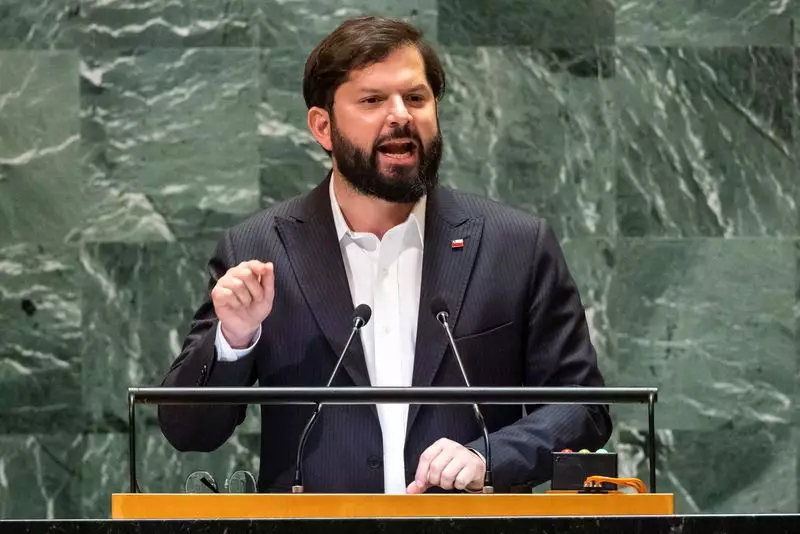In a pivotal move, President Gabriel Boric of Chile has unveiled a proposition for a 2.7% increase in the national budget for the year 2025. This proposal marks a strategic shift in the government’s fiscal focus, emphasizing expenditures on national security, healthcare improvements, and pension enhancements. The announcement underscores a broader narrative about governance within Chile, as it seeks to balance citizen safety with social welfare.
A significant aspect of Boric’s proposal is the pronounced increase in funding for national security, which will see an additional $1.5 billion earmarked compared to the previous budget. Boric has made it clear that ensuring the security of citizens is a primary concern for his administration, elevating the security budget by 15% over a span of three years. This has implications for public safety on various fronts: increased police presence is anticipated, along with higher salaries for law enforcement personnel and improvements in prison facilities.
Moreover, the President has taken a firmer stance on migration policy, emphasizing the need to control illegal immigration. This shift illustrates a governmental duality: while striving for increased domestic stability, the administration is concurrently navigating complex immigration challenges, especially in light of regional crises, such as the mass exodus from Venezuela.
Beyond security, Boric’s budget strategy aims to enhance pensions and the healthcare sector. The allocation of resources for immunization programs will rise by 42%, reflecting a commitment to public health amid ongoing global health concerns. The president’s intent appears clear: improve the quality of life for Chileans through bolstered social services. Additionally, investments in education and culture are also part of the proposal, suggesting a holistic approach to social well-being.
This dual investment in security and social welfare raises intriguing questions about the underlying philosophy of governance: Can a government achieve a balance between ensuring safety and investing in its citizens’ long-term health and education?
On the economic front, the Chilean central bank has recently revised its growth projections, now estimating a range of 2.25% to 2.75% for the coming year, down from previous figures. This comes alongside a forecasted inflation rate of 4.5% for the current year, slowing to 3.6% in the next. Boric’s targeted growth rate of 2.6% must now contend with these mixed economic signals.
Furthermore, with Congress expected to deliberate on the budget over the next 60 days, the political dynamics surrounding its approval will be crucial. The recent passage of new tax legislation, anticipated to generate an additional $1.2 billion in revenue, could support these proposals but also elicited discussions on the sustainability of increased spending.
As President Boric prepares to bring the 2025 budget proposal to Congress, the approach conveys a multifaceted strategy aimed at addressing security concerns while also investing in vital social programs. The effectiveness of this dual focus will depend not only on legislative support but also on how well the economic predictions materialize. This proposal may set the stage for a significant transformation in Chile’s approach to governance, marking a careful balancing act between immediate security needs and long-term social stability.

